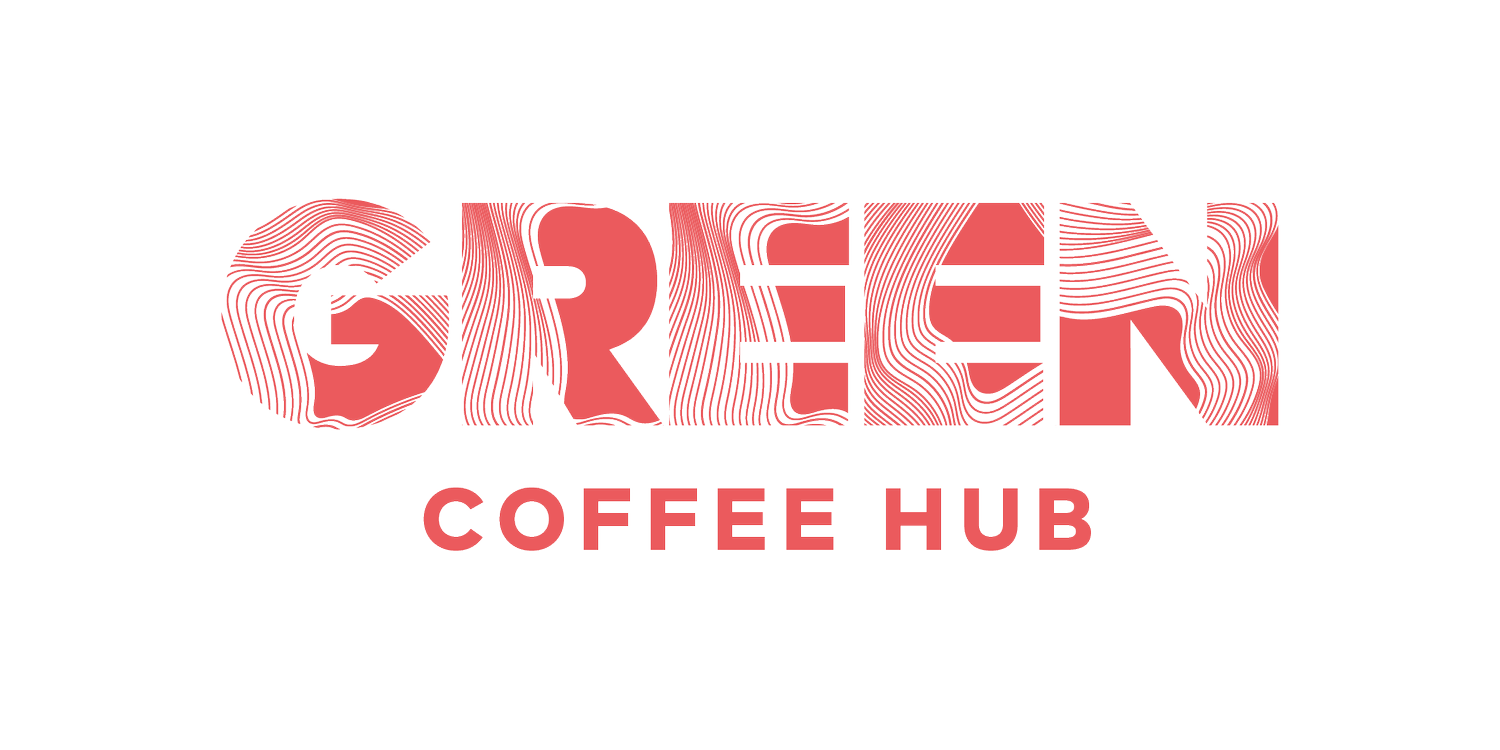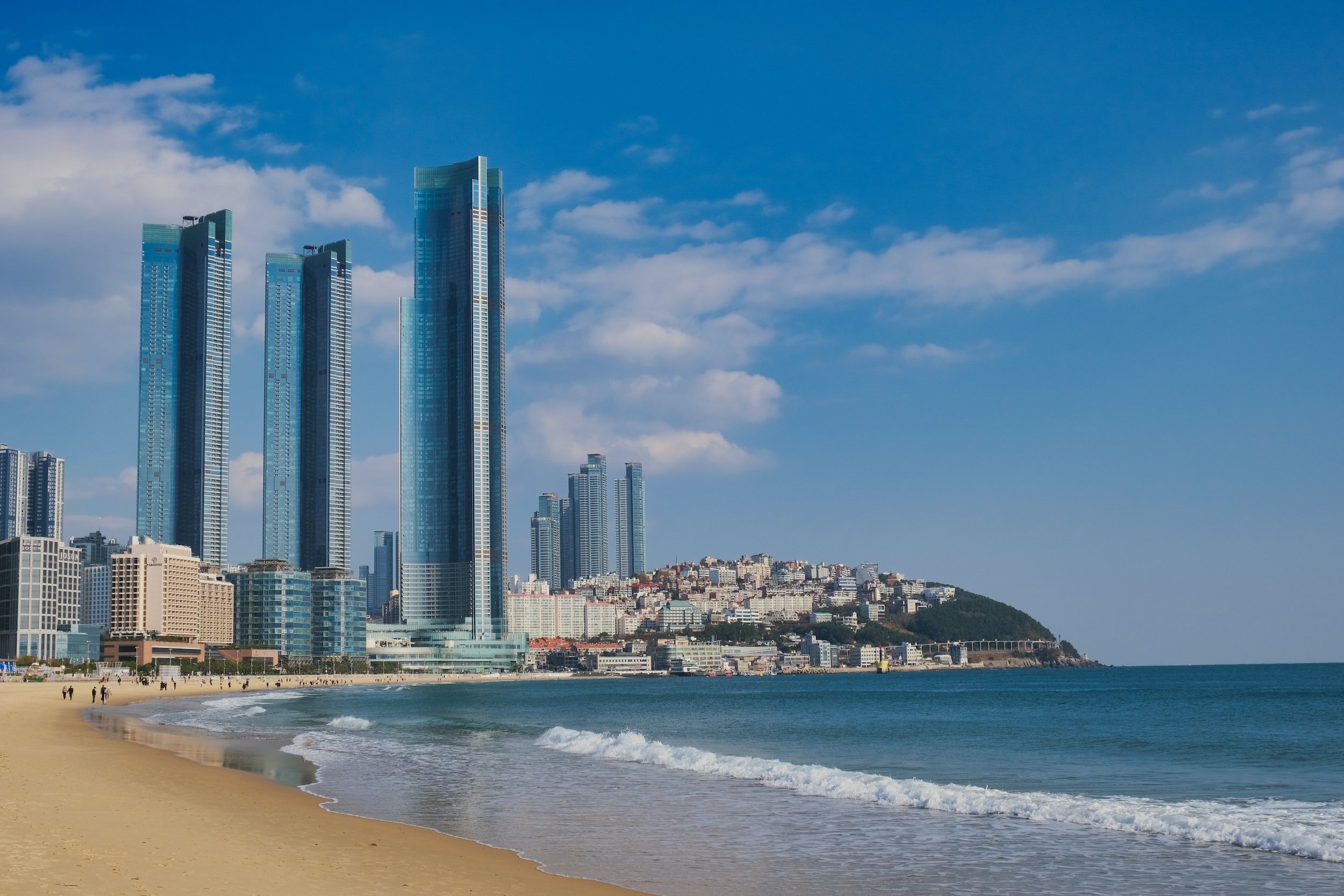
Welcome to the SCA’s Green Coffee Hub, a home for coffee market resources.

A New Trade Show Feature!
Green Coffee Connect is an event at the forefront of fostering inclusive business relationships within the coffee industry. Our event offers a dynamic platform for participants to engage in enriching learning experiences and forge valuable connections.
Join us at an Upcoming Event:


Spotlight: Coffee Value Assessment System
MARIO R. FERNÁNDEZ-ALDUENDA, PhD explains the learnings of the evaluation phase of the SCA’s Coffee Value Assessment System work as well as an update on the pilot process at the heart of the project’s ongoing evolution phase.
Anthropologist SARAH BESKY, PhD considers the relationship between tea’s sensory lexicon and ideas of quality across tea’s colonial history and current-day trading practices, highlighting that quality is far from an objective measure—and that it must be constantly reproduced in practice, including how we choose and use words to adjudicate quality over time.
Anthropology Professor EDWARD F. FISCHER, author of Making Better Coffee: How Maya Farmers and Third- Wave Tastemakers Create Value, explains the different types of value, ways of determining worth, and how we create economic value by drawing on other sorts of values (moral, social, political, and other cultural values) through the lens of his fieldwork in Guatemala.
In this four-part series, we will hear from the authors of two recent publications by the Specialty Coffee Association, the Coffee Sensory and Cupping Handbook and the Attributes White Paper. Drawing upon advances in sensory science, the global expansion of specialty coffee, and a commitment to making specialty coffee a thriving, equitable, sustainable activity for the entire value chain, SCA speakers Kim Elena Ionescu, Dr. Mario Fernández Alduenda, Peter Giuliano, and Jenn Rugolo will make the case that the coffee industry's understanding of value has evolved over the past two decades and our tools - like the SCA Cupping Form - must evolve, as well.
Dr. JORGE BERNY and Dr. MARIO FERNÁNDEZ-ALDUENDA share initial results of a collaborative study examining how cuppers cup and exploring the potential impacts of a proposed component of the reengineered cupping protocol.
Desde su creación en el 2004, el actual sistema de cata de la SCA se ha transformado en una norma del secto cafetero, con reconocimiento global por parte de muchos actores interesados en todo el mundo, para evaluar la calidad del café y ayudar a determinar su valor en contratos comerciales. Mientras tanto, nuestra comprensión de la ciencia sensorial y de las propiedades sensoriales del café, así como del sector del café de especialidad y su contexto global, han avanzado significativamente
Since it was created in 2004, the existing SCA cupping system has become a globally recognized industry standard used by many stakeholders across the globe to assess coffee quality and to assist in the determination of a coffee’s value in contracts. Meanwhile, our understanding of sensory science and coffee’s sensorial properties, as well as the specialty coffee industry and its global context, have advanced significantly
"It's what's in the cup that matters," right? But is that actually true? The SCA's Chief Research Officer, Peter Giuliano, examines trends in consumer preference research that suggests a coffee's extrinsic attributes play a significant role in coffee choice and enjoyment by specialty coffee consumers.
Green Coffee Summit 2023 wouldn’t have been possible without the generous support of our 2023 partners.
Thanks to Title Sponsor, Barista Attitude, and Supporting Sponsors, BWT water+more, and Caravela Coffee.

Read
How Do Cuppers Cup? Evaluating and Evolving Elements of the SCA Cupping Protocol
Dr. JORGE BERNY and Dr. MARIO FERNÁNDEZ-ALDUENDA share initial results of a collaborative study examining how cuppers cup and exploring the potential impacts of a proposed component of the reengineered cupping protocol →
Finance & Risk
SARAH CHARLES, writer, Communications Officer at the International Trade Centre, and author of a recent dissertation on mandatory supply chain due diligence, outlines the history, opportunities, and challenges of regulatory sustainability approaches while offering a path forward for coffee businesses grappling with the shift from a voluntary to a regulatory approach.
In recent years, impact investment allocation increased exponentially also in agricultural commodities such as coffee and cocoa. Yet, few had the chance to understand what hides behind the hype surrounding the phenomenon. Is impact investing just a buzzword, or are there concrete opportunities for operators in the coffee value chain? What approaches and synergies are best suited to access new sources of financing for sustainable coffee trade and production?
Smallholder coffee farmers face unique challenges in improving their coffee production and productivity. Recognizing this, the coffee sector has rolled out a variety of interventions and programs over the past decade (or more) aimed at enhancing productivity, profitability, and eventually, the income of these smallholder farmers. But have these programs worked?
Originating in the early 2000s as an acronym to capture non-financial areas connected to business performance, the term ESG—short for “environmental, social, and governance”—has become significantly more visible over time. While the term now appears in mainstream outlets more often than it did a decade ago, many people are still unclear on what it really means, how it differs from or aligns with sustainability, and its potential relevance for their own organizations. KELLEM EMANUELE offers an ESG primer tailored for the coffee industry.
As the word "sustainable" continues to grow in importance to consumers, it is being used in many different ways. While we're shifting our definition to encompass concepts like living income, argues Catalina Eikenberg, we're still under-utilizing tools and leverage points to help us move forward.
Jeanine Niyonzima-Aroian shares a business model to help build more sustainable communities.
Erika Koss sheds light on the vital human labor that makes it possible for farmers to be paid and for baristas to serve coffee.
Confronting Tomorrow's Risks Today: Key Strategies for Reimagining Resilience in the Coffee Value Chain
Explore the Latest Resources
Economists DAVIDE DEL PRETE and ROCCO MACCHIAVELLO recently completed a literature review of sustainability interventions for the Coffee Science Foundation; here, with PETER GIULIANO, they summarize its findings.
SARAH CHARLES, writer, Communications Officer at the International Trade Centre, and author of a recent dissertation on mandatory supply chain due diligence, outlines the history, opportunities, and challenges of regulatory sustainability approaches while offering a path forward for coffee businesses grappling with the shift from a voluntary to a regulatory approach.
MARIO R. FERNÁNDEZ-ALDUENDA, PhD explains the learnings of the evaluation phase of the SCA’s Coffee Value Assessment System work as well as an update on the pilot process at the heart of the project’s ongoing evolution phase.
There are so many possible interpretations of sustainability, with some of the more familiar driven by a particular mode of thinking or focus on a particular angle of such a complicated topic. In this series, SCA Sustainability Director, ANDRÉS MONTENEGRO, explores different sustainability frameworks in relation to the SCA’s sustainability agenda of equitable value distribution, beginning with “climate justice.”
In the second in a series of features on sustainability frameworks and their relationship to the SCA’s sustainability agenda of equitable value distribution, SCA Sustainability Director ANDRÉS MONTENEGRO explains the concept of the circular economy through the use of a doughnut-and-coffee metaphor and highlights an upcoming seminar at Re:co Symposium in Portland designed to help participants apply its principles to their own work.
Anthropologist SARAH BESKY, PhD considers the relationship between tea’s sensory lexicon and ideas of quality across tea’s colonial history and current-day trading practices, highlighting that quality is far from an objective measure—and that it must be constantly reproduced in practice, including how we choose and use words to adjudicate quality over time.
Anthropology Professor EDWARD F. FISCHER, author of Making Better Coffee: How Maya Farmers and Third- Wave Tastemakers Create Value, explains the different types of value, ways of determining worth, and how we create economic value by drawing on other sorts of values (moral, social, political, and other cultural values) through the lens of his fieldwork in Guatemala.
In this four-part series, we will hear from the authors of two recent publications by the Specialty Coffee Association, the Coffee Sensory and Cupping Handbook and the Attributes White Paper. Drawing upon advances in sensory science, the global expansion of specialty coffee, and a commitment to making specialty coffee a thriving, equitable, sustainable activity for the entire value chain, SCA speakers Kim Elena Ionescu, Dr. Mario Fernández Alduenda, Peter Giuliano, and Jenn Rugolo will make the case that the coffee industry's understanding of value has evolved over the past two decades and our tools - like the SCA Cupping Form - must evolve, as well.
In 2019, Colombia-based Azahar Coffee Company launched “A Sustainable Coffee Buyer’s Guide” to address the information asymmetry between green coffee buyers and sellers over the value of coffee.
In recent years, impact investment allocation increased exponentially also in agricultural commodities such as coffee and cocoa. Yet, few had the chance to understand what hides behind the hype surrounding the phenomenon. Is impact investing just a buzzword, or are there concrete opportunities for operators in the coffee value chain? What approaches and synergies are best suited to access new sources of financing for sustainable coffee trade and production?
This session pairs high-quality national data with the personal experiences of specialty coffee professionals for an overview of coffee consumption in North America in 2022: who is drinking coffee, how their preferences are changing, and which companies are growing fastest to meet that demand.
The Algrano market report is a once-annual analysis of coffee sourcing and production trends, and to date has focused on the European market. Over the course of one hour, the panelists discuss how the trends they identified at the end of 2021 and at the beginning of 2022 have evolved over the course of the past year, and they provide insight into what these evolutions might mean for the coffee sector going forward.
Smallholder coffee farmers face unique challenges in improving their coffee production and productivity. Recognizing this, the coffee sector has rolled out a variety of interventions and programs over the past decade (or more) aimed at enhancing productivity, profitability, and eventually, the income of these smallholder farmers. But have these programs worked?
This session paired high-quality national data with the personal experiences of specialty coffee professionals for an overview of coffee consumption in the UK and Europe in 2022: who is drinking coffee, how their preferences are changing, and which companies are growing fastest to meet that demand.
A brief overview of the current state of coffee fermentation science, hosted in partnership with The Fermentation Association, featuring Dr. Mario Fernández, Felipe Ospina, and Rubén Sorto.
Dr. JORGE BERNY and Dr. MARIO FERNÁNDEZ-ALDUENDA share initial results of a collaborative study examining how cuppers cup and exploring the potential impacts of a proposed component of the reengineered cupping protocol.
Desde su creación en el 2004, el actual sistema de cata de la SCA se ha transformado en una norma del secto cafetero, con reconocimiento global por parte de muchos actores interesados en todo el mundo, para evaluar la calidad del café y ayudar a determinar su valor en contratos comerciales. Mientras tanto, nuestra comprensión de la ciencia sensorial y de las propiedades sensoriales del café, así como del sector del café de especialidad y su contexto global, han avanzado significativamente
Since it was created in 2004, the existing SCA cupping system has become a globally recognized industry standard used by many stakeholders across the globe to assess coffee quality and to assist in the determination of a coffee’s value in contracts. Meanwhile, our understanding of sensory science and coffee’s sensorial properties, as well as the specialty coffee industry and its global context, have advanced significantly
"It's what's in the cup that matters," right? But is that actually true? The SCA's Chief Research Officer, Peter Giuliano, examines trends in consumer preference research that suggests a coffee's extrinsic attributes play a significant role in coffee choice and enjoyment by specialty coffee consumers.
Today’s SCA Cupping Protocol and the SCA Cupping Form are among the most used tools of the coffee industry, applied daily by thousands of people around the world, serving actors across coffee’s vast and complex value-generating system.
Professors CARLOS CARPIO, PhD and LUIS SANDOVAL, PhD worked with BRENDA MAMANI, MSc to ask: what are the living wages in El Salvador and Honduras, and how would current total costs and profitability of coffee production be affected if farmworkers were paid living wages?
Originating in the early 2000s as an acronym to capture non-financial areas connected to business performance, the term ESG—short for “environmental, social, and governance”—has become significantly more visible over time. While the term now appears in mainstream outlets more often than it did a decade ago, many people are still unclear on what it really means, how it differs from or aligns with sustainability, and its potential relevance for their own organizations. KELLEM EMANUELE offers an ESG primer tailored for the coffee industry.
Corresponding author MATEUS MANFRIN ARTÊNCIO shares the findings of a recent paper, “A Cup of Black Coffee with GI, please! Evidence of Geographical Indication Influence on a Coffee Tasting Experiment,” published in Physiology & Behavior, confirming the significant influence an extrinsic attribute like a geographical indication has on consumers’ tasting.
The word “sustainability” is everywhere, but do we really know—or agree on—what it means? Professor SARAH GRANT explains why, despite its difficulty, understanding “sustainability” as a framework is a worthwhile endeavor, especially in understanding culturally relative perspectives and the power relations inherent in the promotion of sustainable coffee.
La amenaza del cambio climático, así como el impacto que se espera que tenga en los rendimientos de café en todo el mundo, preocupa especialmente al sector mundial del café en 2022.Este informe tiene como objetivo destacar algunas de las herramientas, estrategias y buenas prácticas clave que los actores de la industria del café pueden adoptar para lograr la reducción de las emisiones de carbono, así como para fomentar un debate más específico sobre métodos y resultados verificables, con el fin de aumentar la acción probada y positiva sobre el cambio climático en todo el sector del café
The ongoing threat of climate change, and the impact it is expected to have on coffee yields worldwide, is of particular concern to the global coffee sector in 2022. This report aims to highlight some of the key tools, strategies, and best practices that coffee industry actors could adopt to achieve carbon emission reduction as well as encourage more targeted conversation about verifiable methods and outcomes, in order to increase proven and positive action on climate change throughout the entire coffee sector
The purpose of this report is to give a broad overview of the South Korean coffee market and the value of select segments therein, as well as indicate trends across both out-of-home and at-home coffee consumption. This overview can give insight into how the South Korean coffee environment is changing over time, and how coffee is consumed in this important market
El objetivo de este informe es ofrecer una visión amplia del mercado de café en Corea del Sur y el valor de determinados segmentos del mismo, así como indicar las tendencias del consumo de café tanto en el sector fueradel- hogar como en el dentro-del-hogar. Este resumen general puede dar insumos sobre cómo el entorno de café en Corea del Sur está cambiando a lo largo del tiempo, y cómo se consume el café en este importante mercado
An overview of retail value of coffee across places of consumption, channels, categories, and brands.
Using the attributes-based definition of specialty coffee, we’ll explore how our understanding of “specialty” has widened—and will continue to widen—in the coming years as we integrate new species and new processing methods into our specialty lexicon.

Un informe *NUEVO*
Carbono y café
La amenaza del cambio climático, así como el impacto que se espera que tenga en los rendimientos de café en todo el mundo, preocupa especialmente al sector mundial del café en 2022.Este informe tiene como objetivo destacar algunas de las herramientas, estrategias y buenas prácticas clave que los actores de la industria del café pueden adoptar para lograr la reducción de las emisiones de carbono, así como para fomentar un debate más específico sobre métodos y resultados verificables, con el fin de aumentar la acción probada y positiva sobre el cambio climático en todo el sector del café →
*NEW* Report
Carbon and Coffee
The ongoing threat of climate change, and the impact it is expected to have on coffee yields worldwide, is of particular concern to the global coffee sector in 2022. This report aims to highlight some of the key tools, strategies, and best practices that coffee industry actors could adopt to achieve carbon emission reduction as well as encourage more targeted conversation about verifiable methods and outcomes, in order to increase proven and positive action on climate change throughout the entire coffee sector →





































